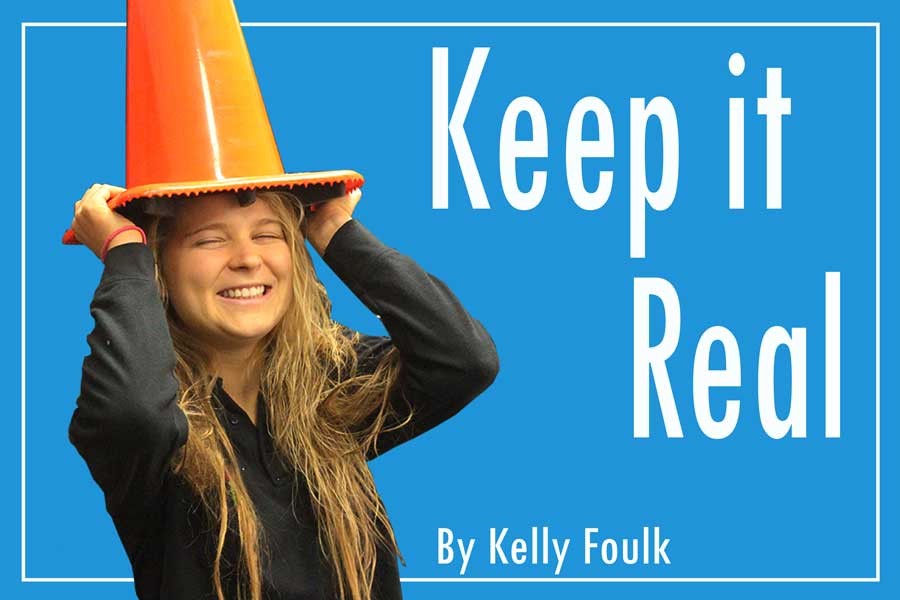Keep it Real: Meeting a Holocaust survivor
News Editor Kelly Foulk keeps life interesting. Don’t be surprised if she shows up at school with a penguin costume on (five minutes late, of course). She does what she wants when she wants to.
What do you say to someone who has endured the smell of burning flesh? Someone who has lived in the barracks of Auschwitz? Someone who has marched in a death march? What do you say to someone who has survived the Holocaust?
These were the questions running through my mind as I walked into school on Feb. 28. I had signed up as a greeter guide for one of 18 different guest speakers who lived during the Holocaust or whose direct family members lived during the Holocaust.
I was assigned to a woman named Bluma Shapiro, who I was supposed to stay with for the day. I was given a brief biography that said: “experienced ghetto life, Majdanek Concentration Camp, Auschwitz Death Camp, death march participant.” That was all I knew about her.
How could I, who had never experienced true pain, talk to someone who had been through so much? What do I say to this person? Do I give her a hug? Do I say nothing? Do I apologize? A million questions raced through my mind.
I worried about what she would be like. Would she be angry and hate the world? Or would she be happy and carefree now that she had survived?
When I met my survivor, the first thing I was struck by was her smile. Before I got the chance to say anything, my fellow guide, Kate Runser, and I were quickly embraced by a hug. All of my worries washed away as we sat down and started talking.
Bluma is the most amazing and remarkable person I’ve ever met. I rarely saw a smile leave her face the entire day. She had decided to put the past behind her and not let it bother her. She repeatedly told me to erase the word hate from my vocabulary. As she frequently reminded me, hate destroys the hater, not the hated.
Bluma definitely took her own advice to heart. She knew she couldn’t change the past, so she refused to ruminate on it. In fact, she hardly even talked about her experiences during the Holocaust.
Memories about the horrors of death marches and living in concentration camps were scarce, and had to be carefully pried from her mind. Part of me believes that she blocked most of these memories from her mind. Any reference to her time during the Holocaust was instead about the kindness of people, both Germans and Jews, showed her.
Despite the fact that she had been invited to talk about her experiences during the Holocaust, 90 percent of her talk focused on her life after her rescue and the lessons she learned. She frequently told stories about the chicken farm she had owned and the cows she couldn’t milk.
Being able to speak to someone who has survived the Holocaust was truly an irreplaceable experience. Throughout the day, I was continually blown away by how happy and carefree Bluma was. She is happier than almost everyone I know, despite living through an experience as scarring as the Holocaust.
Talking to Bluma and hearing her experiences first-hand made the Holocaust more real. Prior to meeting her, I had only read about the Holocaust in books or seen pictures in museums. From Bluma, I was able to hear bits and pieces of daily life that made this event a clearer image.
I wouldn’t trade the experience for anything. Soon there will be no more Holocaust survivors left, and it’ll be up to us to make sure that those who were lost are remembered. As Bluma frequently told me, the stories of the survivors need to be told, in the hope that they can prevent similar events from happening.
Kelly Foulk is a News Editor for The Patriot and jcpatriot.com.



